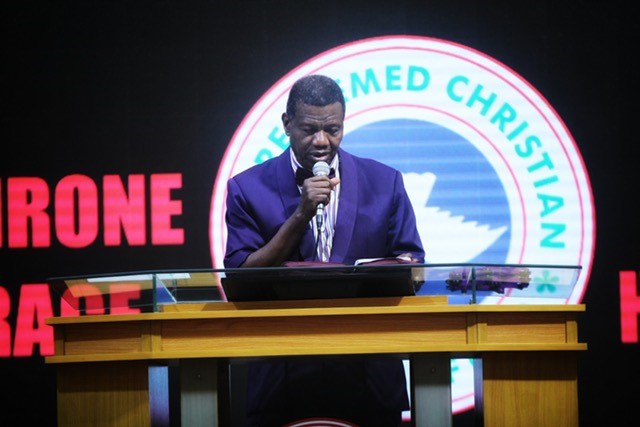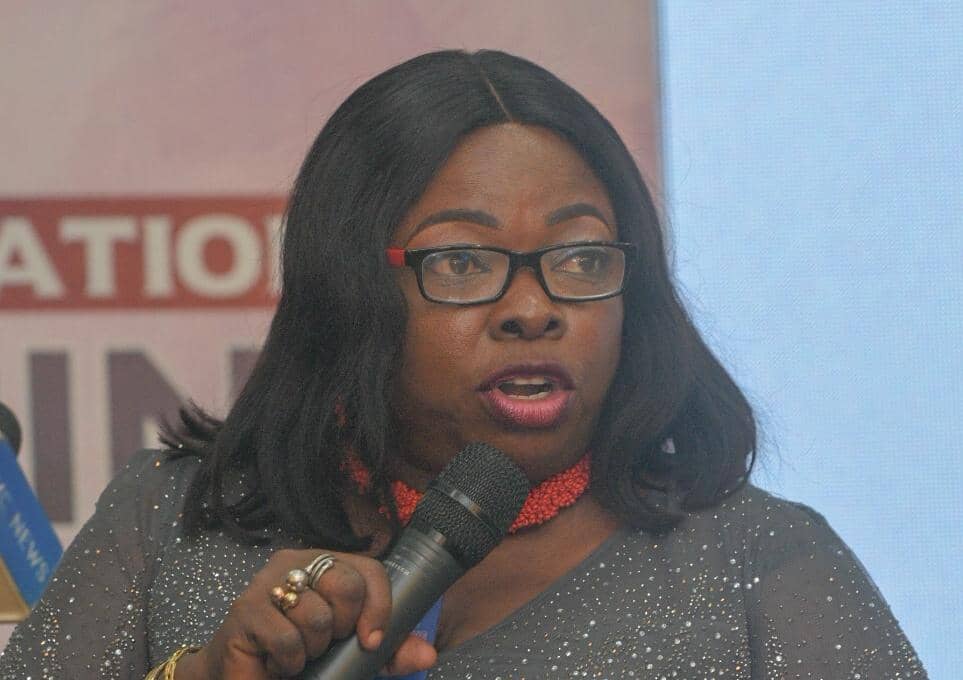BY VINCENT UFUOMA, ICIR
Being her first pregnancy, 24-year-old Adedera Tosin did not envisage the complications that almost took her life and her 6-months unborn baby on the night of June 16, 2019.
She said she had just finished preparing dinner for her family when she started feeling uneasy and a sharp pain in her stomach.
With the help of her 50-year-old mother and concerned neighbours, Tosin was quickly taken to Model Primary Centre, Igbara Odo Ekiti, where she had registered for antenatal care but was shocked to be told she could not be attended because there was no available medical staff qualified to take delivery.
Advertisement
Speaking with The ICIR, Oluwatosin’s mother, Blessing Adedara, one of the community chiefs, recalled the series of incidents that played out that night.
Adedera said she had to start looking for a vehicle that night to convey her child in a more than-hour journey to a different hospital in Ado-Ekiti, the state capital.
“That night, my daughter suddenly developed a complication, and we rushed her to the maternity centre. But when we got there, they checked her card and asked us to come on the date she had been given. That is how I rushed her to Ado late in the night. Is this supposed to be so? They are meant to attend to us at any time, even if it is at midnight,” she said.
Advertisement
She lamented that a shortage of personnel at the health centre made it difficult for staff to attend to patients who visit the hospital without appointments, even in emergencies.
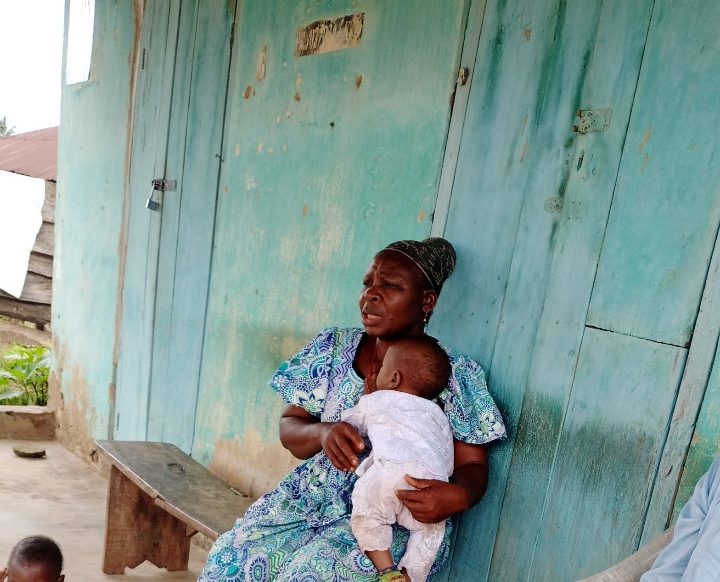
“If a pregnant woman needs any medical attention outside the date given to her, they will not attend to her. They will ask her to come back on her appointment date. For example, they can ask them to come back after a month. What if something happens between those dates? That is why some people prefer to register at Ado-Ekiti or Ilawe.
“When it’s very critical, we don’t take people to any health centre here. If they can’t attend to them here, we quickly take them to Ado or any other place,” Adedera explained.
Ensuring healthy lives and promoting well-being for all at all ages through affordable and prompt healthcare delivery is one of the commitments of the United Nations’ sustainable development goal (SDG). The goal also aims at reducing maternal and neonatal mortality and other avoidable deaths globally by 2020.
Advertisement
But this important and noble goal has almost become elusive to residents of Igbara Odo, who have been at the receiving end of one of the town’s abandoned and deplorable primary health centres.
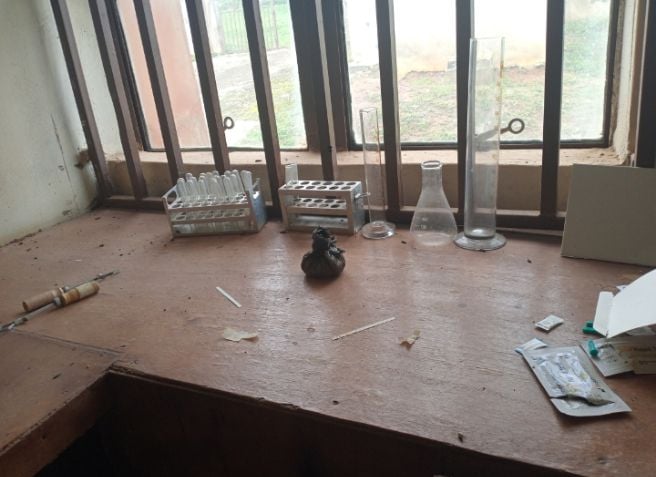
Located in the South West Local Government Area, Ekiti State, Igbara-Odo, is a suburban and agrarian community of more than 30,000 residents, according to the census to 2006 census figures.
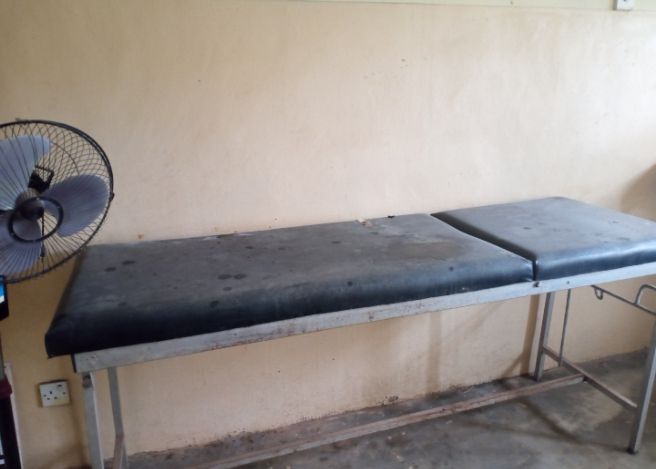
Model Health Centre is among the three public health facilities in the town. It was built by the federal government and handed over to the state government in 2010.
Advertisement
When this reporter visited the facility in September 2022, he met and saw two nurses who would not allow him to take pictures of the facility for fear of being queried and losing their jobs. But this reporter would later return to the facility to see patients’ rooms overtaken by dust, cobwebs, insects and birds.
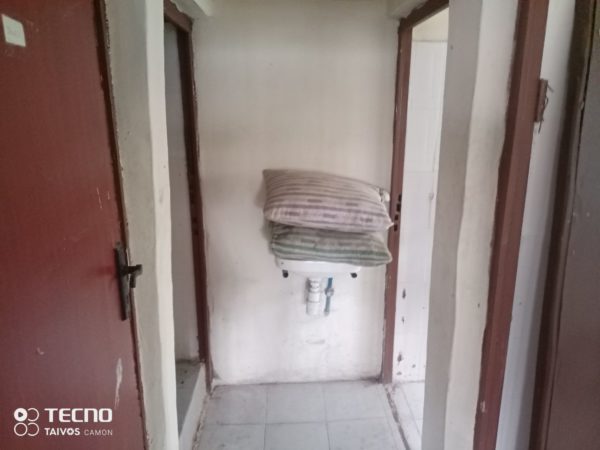
In one of the rooms, patients’ beds lay dirty and uncovered. Aside from the laboratory, which appeared like an abandoned kitchen, the dust-covered consultation rooms seemed to have not been used in a very long time.
Advertisement
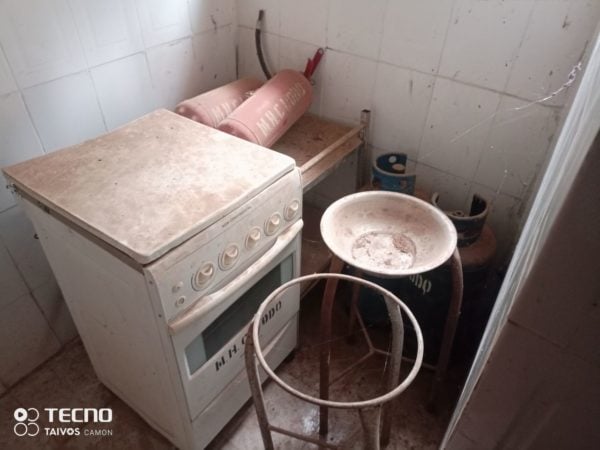
On the outside, some parts of the building had developed obvious and dangerous cracks that could endanger the life of health workers and patients. While some windows were broken, their wooden nets were rusty and dusty. Behind the building, empty and improperly disposed of bottles of medicines and vaccines litter the ground. The only water source for the facility is a hand-dug well, as the borehole, which was supposed to give water to the facility, has spoilt.
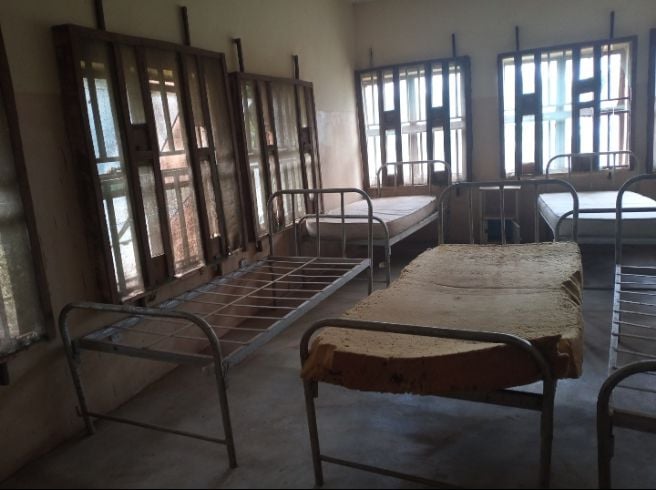
One of the nurses, who would not want her name to be mentioned because of victimisation, told The ICIR that three nurses are managing the health centre, which does not have any cleaner and gardener.
Advertisement
The nurse complained that the three nurses staffing the facility since 2013 are the ones who tidy it up. The community also sends people to sometimes clear surrounding bushes within and outside the building.
The nurse also noted that residents no longer patronise the facility due to the neglected and abandoned nature of the place, adding that the centre is only used to administer immunisation.
Advertisement
The nurse pleaded with relevant authorities to take necessary steps to make the facility conducive and clean for staff and patients.
Residents travel kilometres in emergency cases
Some of the residents interviewed by this reporter said they had now resorted to leaving the town to other places like Ado-Ekiti and neighbouring towns to access proper health care.
Like Blessing, Monday Nnamdi’s friend’s son nearly lost his life in May 2021. It was a Friday afternoon, and the boy had just returned from school. First, he began to shiver and not long after, he was on the floor unconscious.
He was rushed to the health centre, only about ten houses away from their residence but didn’t meet any health officials on the ground.
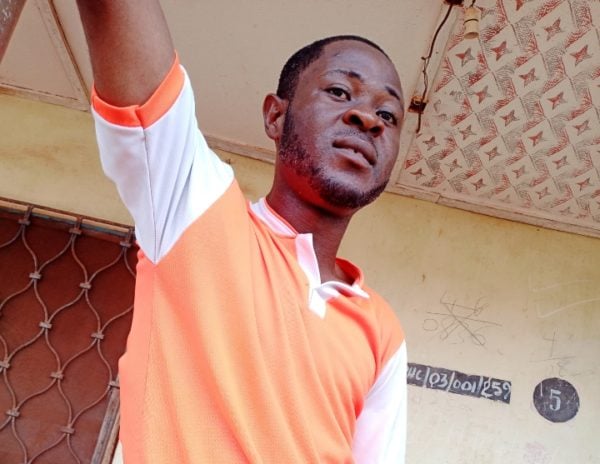
Nnamdi said the child had to be quickly taken to Saint Mary Catholic Hospital, the only mission-owned and private health centre in the community, for medical attention.
“We didn’t see anybody. We had to rush straight to Saint Mary Catholic Hospital. There, someone attended to us. That is why I said I prefer going to the private health centre,” he said.
Anitiedeth Ubit, a cocoa farmer whose house is beside the health centre, had been living in the community for 20 years. Despite his house’s proximity to the facility, he prefers to visit other health centres.
“For me, instead of carrying my child there, to be praying to God for healing is better because that place is not useful at all. On many occasions, if they bring patients there, they will say, ‘go to a place to bring paracetamol’. Because of that, people do not like to go there. Even small children like this, people don’t take them there.
“It is even recently that they started cleaning the place. Before now, the place was overtaken by weed. The staff don’t take care of the place. I’ve been in this town for over 20 years. Although my house is closer to this hospital, my wife did not deliver any of my children there.
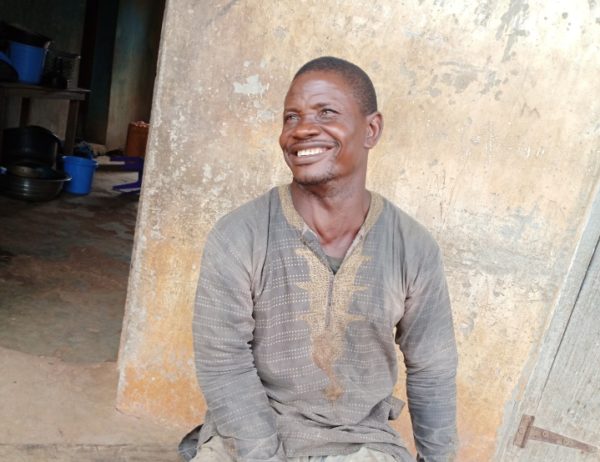
“If government employs new workers and then prays for the place very well, it could become good again,” he told The ICIR.
A nephew to the king of Igbara-Odo, Banji Olowokakoko, had a similar view.
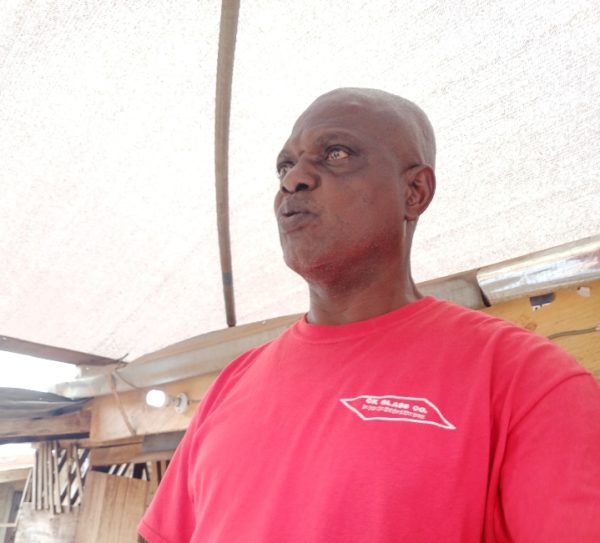
He said, “We don’t like to use the place. Those that are working there are not serious with us. You can get there, and they will not attend to you. That is why people prefer to go to Ado or Ilawe.
“There was even a time about four years ago that a woman was taken to the health centre. But due to inefficient services in the hospital, the woman gave up.”
Community speaks
The town’s paramount traditional ruler, Edward Jayeola, complained that the health centre has been abandoned in its current state for more than 5-years to the detriment of residents living in the town.
Rather than equipping and employing more professional hands to manage the existing health facilities in the town, the king lamented that the Federal Government had built two additional unused and unequipped health centres in the town.
He said his subjects have resorted to self-help, including taking local herbs popularly referred to as “agbo” in Yoruba and travelling several kilometres outside the town to meet some of their medical needs and emergencies.
He pleaded with the state government to focus on equipping and employing more hands for the existing worn-out health facilities before building new ones in the town.
“We don’t need the two hospitals we were given, to be honest,” he said.
“We have three already that need more staff and better equipment. Yet, they built two more.”
State blames the federal government
In an interview with The ICIR, the Executive Secretary of the State Primary Health Care Development Agency (PHCDA), Gilbert Seluwa, who is also from Igbara-Odo, blamed the federal government for the poor state of the primary health centre in the community.
Seluwa said that without consulting with the state and the agency, the federal government built that particular health centre and several others across the state in 2010.
“This health centre was built by the federal government 15 years ago without consulting the state government,” he said.
“They awarded them to contractors who did shoddy jobs. The state government and the agency were not carried along when they were built.”
The Basic Basic Healthcare Provision Fund (BHCPF) was enacted in the National Health Act (NHAct) by the Nigerian government in 2014 but was launched by President Muhammadu Buhari and appropriated for the first time in the 2018 budget.
The NHAct sets out the important drivers to guide the disbursement of the BHCPF. These “Payment Gateways” are in three-fold, and the Act states that 50 per cent (one-half) of the Fund shall be disbursed through the National Health Insurance Scheme (NHIS) and deployed towards the provision of the Basic Minimum Package Health Scheme (BMPHS) in eligible primary or secondary health care facilities.
Forty-five per cent of the Fund is meant to be disbursed through the National Primary Health Care Development Agency (NPHCDA) and deployed to strengthen Primary Healthcare Centres (PHCs) in eligible PHC facilities for the provision of essential drugs, vaccines, and consumables; provision and maintenance of facilities, equipment and transport; and development of human resources: while five per cent shall be disbursed through a committee appointed by the National Council on Health (NCH) and deployed towards emergency medical treatment.
Current contributions into the basket fund of the BHCPF include N86 billion, of which about N56 billion has been disbursed to states as of June 2022, the secretary of the oversight committee of the Federal Ministry of Health, Chris Isokpunwu, disclosed.
To access the Fund, a section of the Act clarifies that states have to pay 25 per cent, while the federal government pays 75 per cent.
Although the state could only access the funds in 2020, Seluwa stated that the Modern Primary Health Care in Igbara-Odo could not be captured under the scheme due to the state government’s one health centre per ward policy.
While expressing hope that the health centre could be captured in the next batch of the BHCPF, he lamented that the state was not financially buoyant enough to repair the more than 350 dilapidated health centres in the state.
This report is part of a collaborative investigative series by HumAngle, the International Centre for Investigative Reporting (ICIR), NPO Reports and TheCable, facilitated by the Wole Soyinka Centre for Investigative Journalism (WSCIJ) under its Collaborative Media Engagement for Development, Inclusivity and Accountability (CMEDIA) project, with support from the John D. and Catherine T. MacArthur Foundation.



